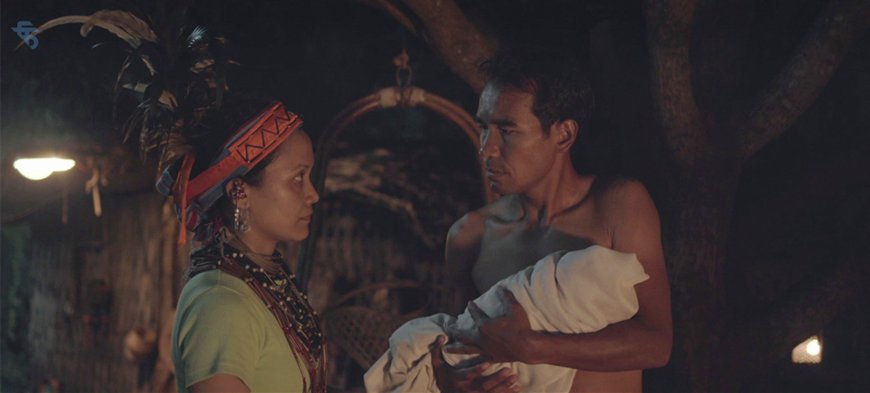Review: Chaware (Son-in-Law, 2023)
Dipankar Sarkar provides a deep comprehensive review of the Jhansy Giting Dokgre Marak’s short film Chaware.

Jhansy Giting Dokgre Marak’s short film Chaware a seemingly calm tale, gradually reveals, the dilemma confronted by two newlyweds, initiated on their wedding night. Though the story may seem simple enough to appear mild and domestic, beneath the simplistic exterior of the plot, there exists a multifaceted layer rich in exploring cultural heritage, family duties, and implicit expectations imposed by custom. Subtle in its execution, with simple dialogues, it resonates with universal conflicts: ambition versus family duty, albeit firmly attached to Garo tradition.
A perfect union, and a night filled with love and promises, is not something the film begins with. From its onset, the film presents us with a subtle friction that initiates between the two of them. Coming from a matrilineal background, it is difficult for the husband to live with his wife's family. His love for his mother, now alone, who has always been close to him, is what is eating him alive. She is fifty-five years old and he feels that something unfortunate might happen to her. So, on close observation, the conflict is not a marital one but an existential one. The husband is torn between his longing for his mother on the one hand and cultural duties on the other.
What draws us into the lives of these people is that neither character is cast as an antagonist. It is more about the deeply ingrained forces that dictate their positions. The husband's connection to his mother is primarily an emotional one, and to view it, from the narrative point of view, as an effective choice will not be a misinterpretation. It further reflects the matrilineal system whereby women theoretically hold dominance, which can lead to alienation among sons. The husband’s pining for his mother goes beyond the physical separation symbolizing the wider question of challenges in identity and belonging constructed in a male-centered society.
Chaware presents a complicated view of gender roles that makes it all the more riveting. The events slowly unfold with the rhythm of normal life and interactions between family members. Sharing food, the very act of welcoming the husband, and the hospitality showered on him become an honest display of accepting him as a member of the family. What would normally be a blissful state now becomes a weighty, nagging line of expectations that the husband and wife would have to deal with—not only from each other but from the whole social setting. Marak's distinct handling enables the quiet grace of this inhibition effectively.
Visually, the film has an austere aesthetic that reflects its understated drama, creating low simmer rather than boiled-over tension. Its documentary-like style captures the couple's intimate moments—the soft-lighted interiors, and beautifully composed frames in such a way that while they share a room, they're so far apart. The edit of the film also intensifies a feeling of discomfort that makes us endure their silences, their hesitations, and their undiscussed frustrations to stay with the characters.
The performances, while unexaggerated, strike deep. The lead actors offer subtle performances that stay far from melodrama The husband's desperate silence and the wife's weary determination—are feelings expressed in small but striking moments of subtlety rather than grand speeches. A look that lingers, a pregnant pause before responding, a slight change in posture—speaks volumes of the emotional cost of being caught between customs.
Chaware was screened at the Dharamshala International Film Festival, in 2024.
*****
What's Your Reaction?






























































